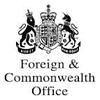Recruitment of application evaluators
Applications for Eligibility Reviewers and Reading Committee members are now closed.
We will contact all shortlisted applicants but due to the volume of applications received we regret that we are unable to contact those who have not been successful.
Chevening Scholarships are the UK government’s global scholarship programme, funded by the FCO and partner organisations. National merit-based competitions in 118 countriesare run each year and Scholarships are awarded to outstanding established or emerging leaders to pursue one-year Master’s degrees in any subject and at any UK university.
Initial application is facilitated via the eChevening online system. Typically, up to 25,000 applications are received. These applications are first reviewed against certain eligibility criteria, and those that make the cut are then sent to Reading Committees for assessment.
Eligibility Reviewers
50 individuals will help us to sift applications against a number of eligibility criteria, and do some checks on applicants’ proposed university courses in the UK. Reviewers will also sign a confidentiality agreement.
- Qualifications: These positions are suitable for postgraduate-level students, recent graduates or early career professionals with an acute attention to detail, strong online research skills, fast reading ability and familiarity with popular software packages (e.g. Word, Excel). Reviewers must also have access to a computer with a fast internet connection so that applications can be downloaded from a secure website and online searches can be conducted on various UK courses.
- Payment: Each reviewer will receive a lump sum of £350 and be required to review approx. 350 applications. Each application will take around five minutes or so to review, including undertaking a web search and completing the reporting spread sheet. This equates to roughly 28 hours of work over a two week period. Paying tax and national insurance will be the responsibility of the reviewer, not that of the Secretariat.
- Timing: Applications will be sent to reviewers in November and be due for completion by 1 December at the very latest. Typically, reviewers will have two weeks to process their allocation of approx. 350 applications. Applicants to the position of eligibility reviewer should not apply if they do not have substantial free time available in November 2013.
Reading Committees
Each Reading Committee comprises three members:
- an Academic Specialist, who will chair the Committee,
- a Regional Specialist, and
- a Lay Member.
12 committees will be assembled for the 2014/15 round of applications. Each will assess approx. 800 applications from one or more countries from the same world region depending on the number of applications received, and of those the number that come through the eligibility review.
Each application will be initially assessed and scored by at least two members of each committee; the Academic Specialist will read a full
set of applications and the Regional Specialist and Lay Member will each read half. The Reading Committee will then meet to prepare a long list of applications to be considered by overseas Posts (British Embassies and High Commissions). The Regional Specialist will prepare a report to feedback to Posts about the overall quality of the applicants in the region, by country, and make recommendations to improve the number and quality of applications in future cycles. Posts will then decide on the final short list to be interviewed. In some cases the Reading Committees may be asked to prepare the short list for approval by Post directly.
- Qualifications:
- Academic Specialists should have substantial experience in assessing candidates for entry onto UK postgraduate courses, from a range of subject areas, and have international experience preferably in a number of countries where Chevening operates.
- Regional Specialists will be expected to have substantial international experience at a senior level across a wide range of countries and/or a region as a whole (preferred).
- Lay Members should have strong backgrounds in and knowledge of one or more of the following: leadership, management/business, science/technology, journalism, higher education in the UK, FCO objectives and/or international relations.
For all three roles experience of the FCO's scholarship schemes or other well-known scholarship programmes would be a distinct advantage.
- Academic Specialists should have substantial experience in assessing candidates for entry onto UK postgraduate courses, from a range of subject areas, and have international experience preferably in a number of countries where Chevening operates.
- Payment: Reading Committee members' payment is an ‘honorarium’. Academic and Regional Specialists will receive a lump sum of £1,500. Lay Members will receive a lump sum of £1,000. Additionally, lunches will be provided at each of the three committee meetings, and travel expenses will be reimbursed up to £150 per person per meeting. (No further expenses will be paid.) Paying tax and national insurance will be the responsibility of the committee member, not that of the Secretariat.
- Timing: Of the 12 committees being assembled, there are different timelines involved:
- One committee will work from 1 October – 30 November 2013.*
- 10 committees will work from 1 December 2013 – 31 January 2014.
- One committee will work from 11 November 2013 – March 2014.*
All Reading Committee members will be expected to read and assess their set of applications in advance of the three face-to-face meetings; the Academic Specialist will read a full set of applications and the Regional Specialist and Lay Member will each read half. Each committee will review several hundred applications and a significant period of time will be required to read during the periods specified above. Additionally, all members must attend mutually-agreed face-to-face meetings (three per committee) – teleconferencing is not permitted. Therefore, applicants for positions on the Reading Committees should have substantial free time and flexibility during the periods specified above.
*The November-March committee will have a smaller number of applications to review, mainly for Chevening Short Courses for Indian Scholars, and will have significant periods of down time between starting in November 2013 and finishing in March 2014.
